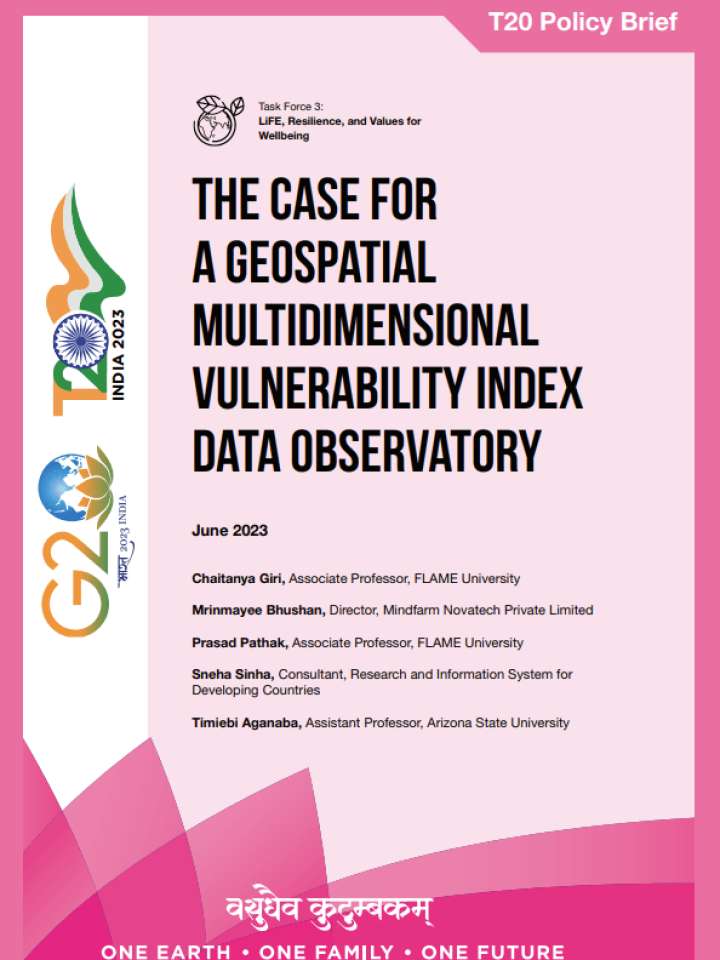The case for a geospatial multidimensional vulnerability index data observatory
This Policy Brief proposes that the G20 initiate a geospatial MVI Data Observatory to aggregate diverse satellite-based remote-sensing-generated vulnerability datasets and supply multidimensional, universal, exogenous, and standardised vulnerability indices. This observatory could aid governmental policies, enabling technology development and deployment and serving as a collaborative platform. The observatory would complement concepts such as Living for Environment (LiFE), One Health, and G20-2023’s ‘Liveable Earth’ goal.
The paper concludes that a virtual and digital G20 MVI Data Observatory would offer wide-ranging and standardised MVI datasets and analytics tools to help with financial preparedness against geological hazards and climate change challenges, mitigating disaster events and aiding post-disaster recovery. The G20 MVI Observatory could systemically accumulate, process, and share end-user-ready satellite remote sensing data, including air quality data, gathered from national space agencies, and merge it with various non-geospatial dimensions to create a dynamic MVI map that national and sub-national governance bodies in the Global South could use to develop resilience against vulnerabilities. It will fill in the current gaps in the various scattered efforts undertaken by national governments and the United Nations in measuring vulnerability and creating indices.
Explore further

